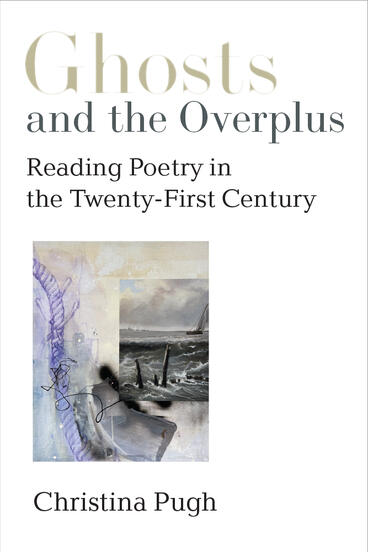Ghosts and the Overplus
Reading Poetry in the Twenty-First Century
Celebrating the voices, current and past, that surface in lyric poetry
Description
Ghosts and the Overplus is a celebration of lyric poetry in the twenty-first century and how lyric poetry incorporates the voices of our age as well as the poetic “ghosts” from the past. Acclaimed poet and award-winning teacher Christina Pugh is fascinated by how poems continually look backward into literary history. Her essays find new resonance in poets ranging from Emily Dickinson to Gwendolyn Brooks to the poetry of the present. Some of these essays also consider the way that poetry interacts with the visual arts, dance, and the decision to live life as a nonconformist. This wide-ranging collection showcases the critical discussions around poetry that took place in America over the first two decades of our current millennium. Essay topics include poetic forms continually in migration, such as the sonnet; poetic borrowings across visual art and dance; and the idiosyncrasies of poets who lived their lives against the grain of literary celebrity and trend. What unites all of these essays is a drive to dig more deeply into the poetic word and act: to go beyond surface reading in order to reside longer with poems. In essays both discursive and personal, Pugh shows that poetry asks us to think differently—in a way that gathers feeling into the realm of thought, thereby opening the mysteries that reside in us and in the world around us.
Christina Pugh has published five books of poems including Stardust Media (2020), winner of the Juniper Prize for Poetry from the University of Massachusetts Press. She has received fellowships and awards from the Guggenheim Foundation, the Poetry Society of America, the Bogliasco Foundation, and the Illinois Arts Council. A recent Visiting Artist at the American Academy in Rome, she is a professor in the Program for Writers at the University of Illinois at Chicago.
Reviews
“Elegance, restraint, conviction, and a quiet authority have always been the hallmarks of Christina Pugh’s remarkable prose; she brings a delicate intellectual acuity to her essays which is made capacious by her compassionate wisdom. Reading Christina Pugh’s essays I’m always astonished by the subtle yet deeply profound intimacy in her writing. With this collection, Christina Pugh has joined poets David Baker, Robert Hass, and Rosanna Warren as one of the most compelling essayists we have in American poetry. I treasure this book.”
- David St. John, author of The Last Troubadour: New and Selected Poems
“A spirited, nonconformist book. Christina Pugh has been covering the waterfront of poetry in English for years as poet, critic, teacher, and editor, and her essays rise from those rambles. She reads Dickinson and Bishop against the fashionable grain, plucks at the notion of ‘mainstream poetry,’ and brings us up close to Jonson, Milton, Stevens, Milosz, Gwendolyn Brooks, Ed Roberson, and others in prose both sensuous and precise. A rich adventure of poetic discovery.”
- Rosanna Warren, author of So Forth: Poems

